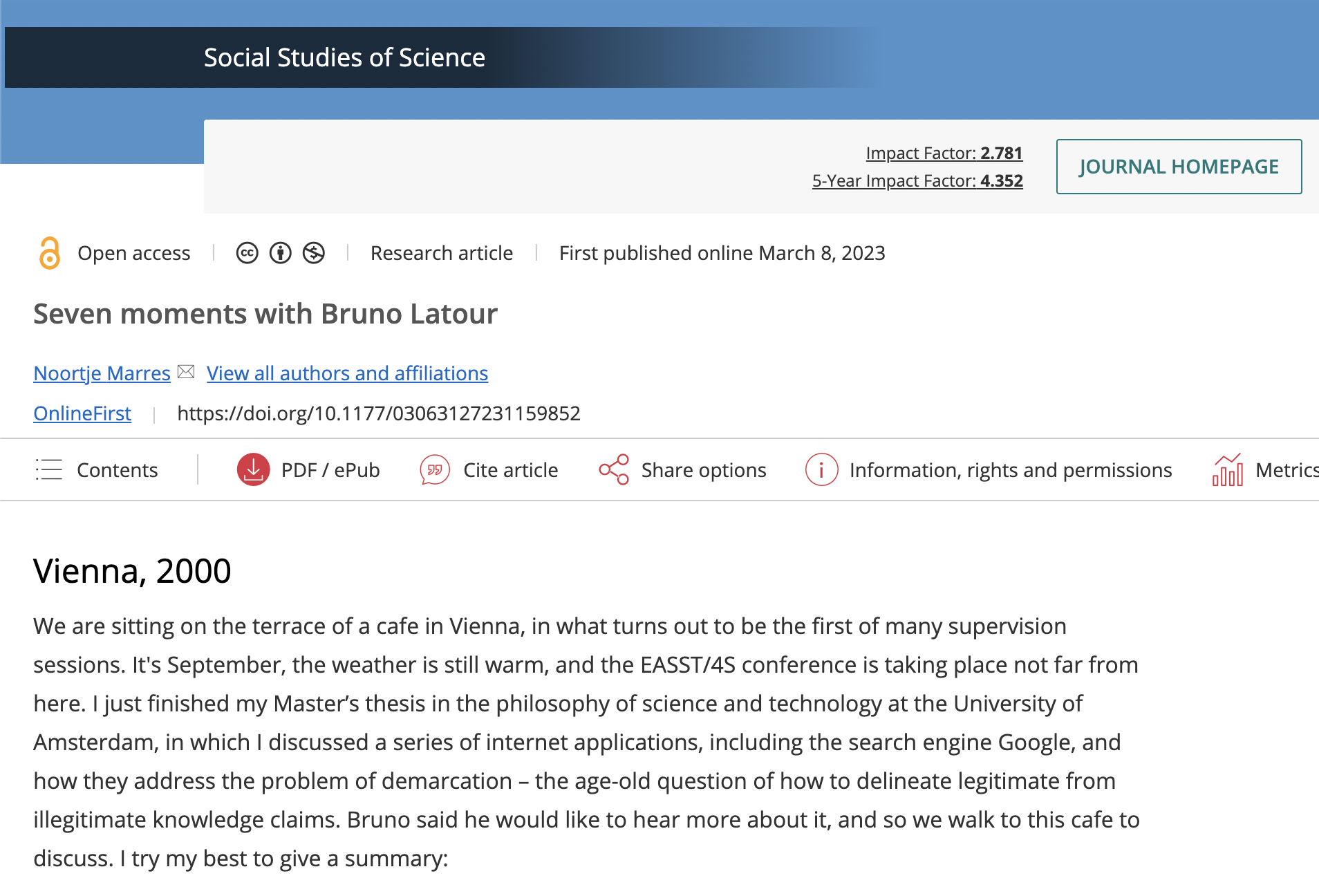Social Studies of Science has just published “Seven moments with Bruno Latour” by Noortje Marres, Professor in Science, Technology and Society at the Centre for Interdisciplinary Methodologies (University of Warwick) and founding member of the Public Data Lab.
The piece moves across memories, conversations and encounters from 1999 to 2022, situating explorations of issue mapping, controversy mapping, hyperlink analysis, ecological politics, feminist science and technology studies, modes of existence, protocols for collective inquiry, and arts-based methods.
An excerpt on “Limburg, 1999”:
It is a rainy afternoon in Limburg, in the south of the Netherlands. I have taken a local train from Maastricht to Kerkrade to visit Rolduc, a Catholic abbey that also hosts academic conferences, and where the Dutch Graduate School for Science, Technology and Modern Culture (WTMC) is holding a meeting. I have a poster with me, a map of the Genetically Modified Food debate on the Web, a circle of nodes representing the websites of organizations that take positions on the issue of GM Foods, and the hyperlinks that connect them. I made this poster with colleagues at the Jan van Eyck Academy, a post-graduate art school in Maastricht, where am working as a theorist-in-residence in the Design Department, as part of a team led by Richard Rogers, the media scholar, to develop digital methods of issue mapping.
It is wet and windy when I arrive in Kerkrade, and I approach the old, tall buildings of Rolduc abbey with what I can only call trepidation. Bruno has invited me to show our poster at the WTMC conference, but I am not at all sure that this was a good idea. I am not even a PhD student, and am based in an art school. I am a stranger. Fortunately, by the time I walk into the conference the poster session is about to start, and I am relieved that I can put my poster on the wall and simply stand there, next to my poster, in a clearly defined role. Bruno asks a lot of questions. Who are these organizations? What can the hyperlinks between them tell us about their ‘position’ in the controversy, and about the controversy itself? He does not ask: Why are you showing us a … data visualization? He does not ask: What are you doing, art or social science? He does not ask: If your poster presents a study of public controversy, then why are you doing this work in a graphic design department? Others join us and we have a conversation.
In 1999, to create what we would later call digital controversy maps was to step into an under-defined, interdisciplinary space. Our work at the Jan van Eyck Akademie brought together STS with design research, computing, internet studies and environmental politics, and at the time this did not make much institutional sense. Our work also looks strange. Indeed, how can one show a network visualisation and call it a debate? As it turned out Bruno Latour was strongly supportive of our approach: the development of interdisciplinary methods of inquiry, which combine social science with art and design, became one of his principal occupations in the decades that followed.

